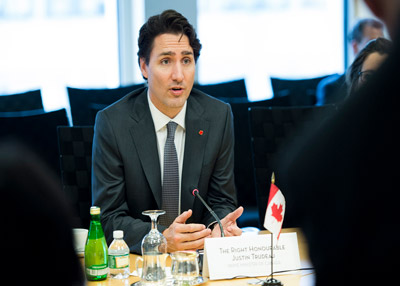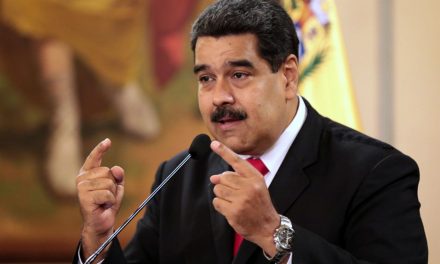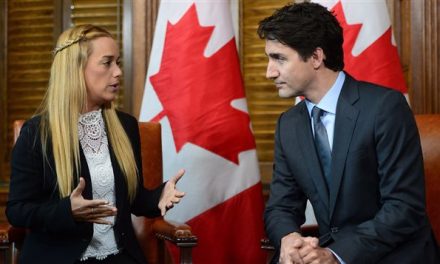Canada’s Lamentable Double Standard Towards Venezuela
By Sheldon Birkett, Research Associate at the Council on Hemispheric Affairs (COHA)
In Ottawa, on May 1st, 2017, Prime Minister Justin Trudeau spoke on the phone with Peruvian President Pedro Pablo
Kuczynski, affirming a commitment to encourage dialogue between the government of Venezuela and the opposition, Mesa Unidad Democrática (MUD).

Trudeau offered his support for a democratic resolution on the political and economic crisis in Venezuela. The rumors of an initiative for Trudeau to lead an Organization of American States (OAS) Venezuela mediation effort came from Peru’s Foreign Minister, Ricardo Luna, after stating that the liberal-minded Trudeau holds a “global power role.” However, on May 16, 2017, Trudeau met with Lilian Tintori in Ottawa. Tintori is the wife of the leader of the right wing opposition party Voluntad Popular, Leopoldo López, who was imprisoned in 2015 for inciting violence in the “guarimbas.” At the meeting with Tintori, Trudeau committed to restoring dialogue “as enshrined in the OAS’s Inter-American Democratic charter.” Though the Canadian government continues to push for talks on the Venezuelan crisis through the OAS, a fair and impartial Latin American mediation process ought to exclude the involvement of Canada and United States. Canada and the United States should be excluded because they have been outspoken partisans in this conflict and form part of a bloc of countries lead by a strong supporter of the Venezuelan opposition, who is the Secretary General of the OAS, Luis Almagro.
There is little prospect for talks coming out of the partisan efforts of the Almagro bloc, that seeks to halt the constituent assembly election process in Venezuela, in comparison to the more open-ended call for dialogue advanced by the CARICOM and ALBA countries. This is apparent as the OAS was unable to reach a resolution on the Venezuelan crisis at the meeting in Cancún, Mexico on June 19th. The push for an international commission on Venezuela, initially proposed by Peruvian President Kuczynski, backed by the United States, and headed by Canadian negotiators, shows that Trudeau is only being used to do Washington’s “dirty work” on Venezuela. Certainly, for a Canadian Prime Minister who won the 2015 election on a platform of “Real Change,” Canada’s one-sided pro-U.S. role in the Venezuelan negotiations reflects anything but “Real Change.”




